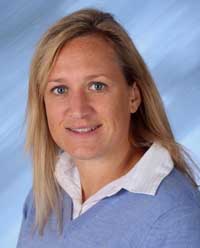MYP Mathematics - the transition to IB Diploma

Support from Rose Harrison
Building the knowledge for DP
Developing mathematical knowledge and understanding and mastering the different MYP concepts will equip students to manage the academic rigour of the DP Mathematics courses.
For learners transitioning to Mathematical Studies SL, the concepts of representation,simplification, quantity, measurement, patterns and space are paramount for the DP external assessment. Gaining a robust understanding of these concepts at MYP level will build strong foundations for Mathematical Studies SL. In-depth comprehension of statistical analysis through representation will also ensure that students are capable of writing a detailed and appropriate statistically-based project.
For learners transitioning to Mathematics Standard Level, a key challenge of this course is the volume of new material. To help, MYP learners should engage with factual, conceptual and debatable questions for each topic; this more thoroughly engages students in learning, and supports stronger, long-term understanding.
At Higher Level, the two courses require learners to respond to unfamiliar questions; this means students need to display flexibility in their thinking. Concept-based teaching during the MYP years builds students’ holistic understanding of mathematics; it enables them to express knowledge in a number of ways and to transgress different mathematical topics through the same concept. Additionally, students will recognize new material at DP level as connected to one of the familiar MYP concepts, enabling them to more confidently build on their conceptual MYP education.
The concept-based approach and DP Mathematics
A concept-based approach at MYP is integral to enabling students to progress to DP mathematics with ease. One clear area of benefit is in the DP Internal Assessment, or the Mathematical Exploration.
The DP Exploration provides students with opportunities to increase their understanding of mathematical concepts and processes, and develop a wider appreciation of mathematics. A firm grounding in conceptual understanding and application of the global contexts studied in the MYP years will put students in a strong position to embark on their Exploration.
For example, an MYP Year 1 student will have been introduced to representation with the Cartesian coordinate plane. Through real-life examples they will examine the four quadrants and the system developed by correctly giving and naming the coordinates, with added history on the importance of Descartes.
In MYP Year 2 the student will revisit the plane by plotting coordinates generated by number patterns, furthering their representation knowledge by adding the concept of pattern. Number patterns could be generated in a variety of ways and will expose the students to position-to-term and term-to-term patterns and how these can be represented on the plane.
In MYP Year 3 these number patterns may be converted into linear functions. How the patterns of these straight lines can be altered by changing the parameters on the plane may be examined through space.
MYP Years 4 and 5 will revisit the same topics, enhancing the concepts with a full understanding f their applications by modelling the linear (and other) functions within a specific global context. This enables the student to experience how the concept of model can be accessed.
This five year concept-based approach empowers students with the necessary conceptual understanding of the fundamental underlying principles to embark on any of the DP courses with confidence.
Rose Harrison is an MYP workshop leader with nearly 20 years’ teaching experience. She is also an IB curriculum review consultant.
MYP Next Chapter resources
MYP Mathematics
Build mathematical understanding and conceptual connections - resources for the MYP Next Chapter.
Search results
No results were found© 2024 Oxford University Press. All rights reserved.


